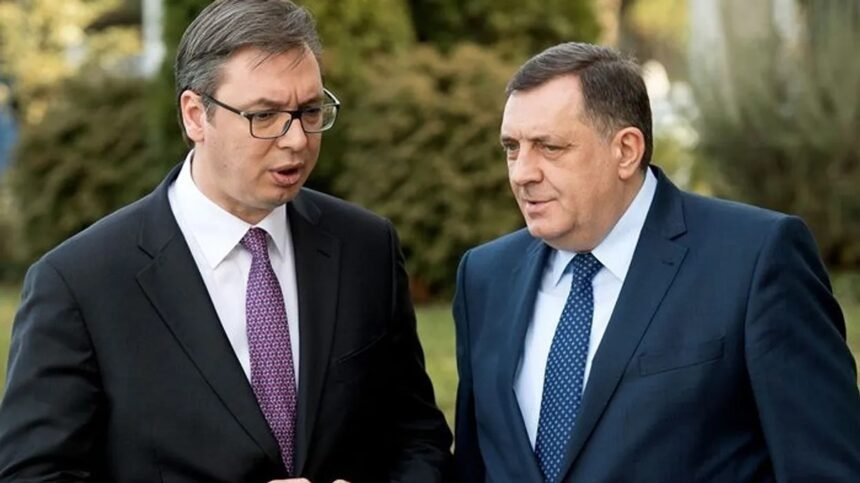For years, Milorad Dodik in Republika Srpska and Aleksandar Vučić in Serbia have wielded power with an iron fist, manipulating institutions, intimidating dissenters, and controlling public life to serve their political interests. Jobs, opportunities, and even basic freedoms have often been contingent on loyalty to their parties, forcing many citizens to flee or endure systemic pressure.
However, the political landscape is showing cracks. Vučić is confronting the most significant challenges of his career, as public dissatisfaction grows over corruption, economic instability, and the government’s authoritarian practices. Similarly, Dodik is seeing his support weaken after years of dominating Republika Srpska’s political scene. Legal convictions, lost positions, and a unified opposition are beginning to erode his once unshakable control.
The recent early presidential elections in Republika Srpska underscore this shift. Dodik’s candidate, Sinisha Karan, narrowly claimed victory with just 50.30 percent of the vote—approximately 217,000 ballots out of 1.2 million registered voters. The result highlights a critical trend: Dodik lost in major urban centers like Banja Luka and Bijeljina, and voter turnout was remarkably low. Despite extensive propaganda efforts and mobilization, including buses of voters from Serbia, his machinery barely secured a slim margin. Opposition leaders have already signaled legal challenges in key municipalities, citing vote irregularities.
Political analysts say these results indicate growing public frustration with both leaders. The narrow win and declining turnout demonstrate that citizens are increasingly unwilling to tolerate decades of authoritarianism, corruption, and political manipulation.
While Dodik and Vučić have long relied on fear and institutional control to maintain power, the latest elections suggest their hold is no longer unassailable. For many observers, these developments may signal the beginning of a shift in the Balkans’ political dynamics, with citizens asserting their voice against entrenched autocratic rule.
The coming months will be crucial. Whether these cracks evolve into lasting change remains to be seen, but one thing is clear: Dodik and Vučić can no longer take their political dominance for granted.







